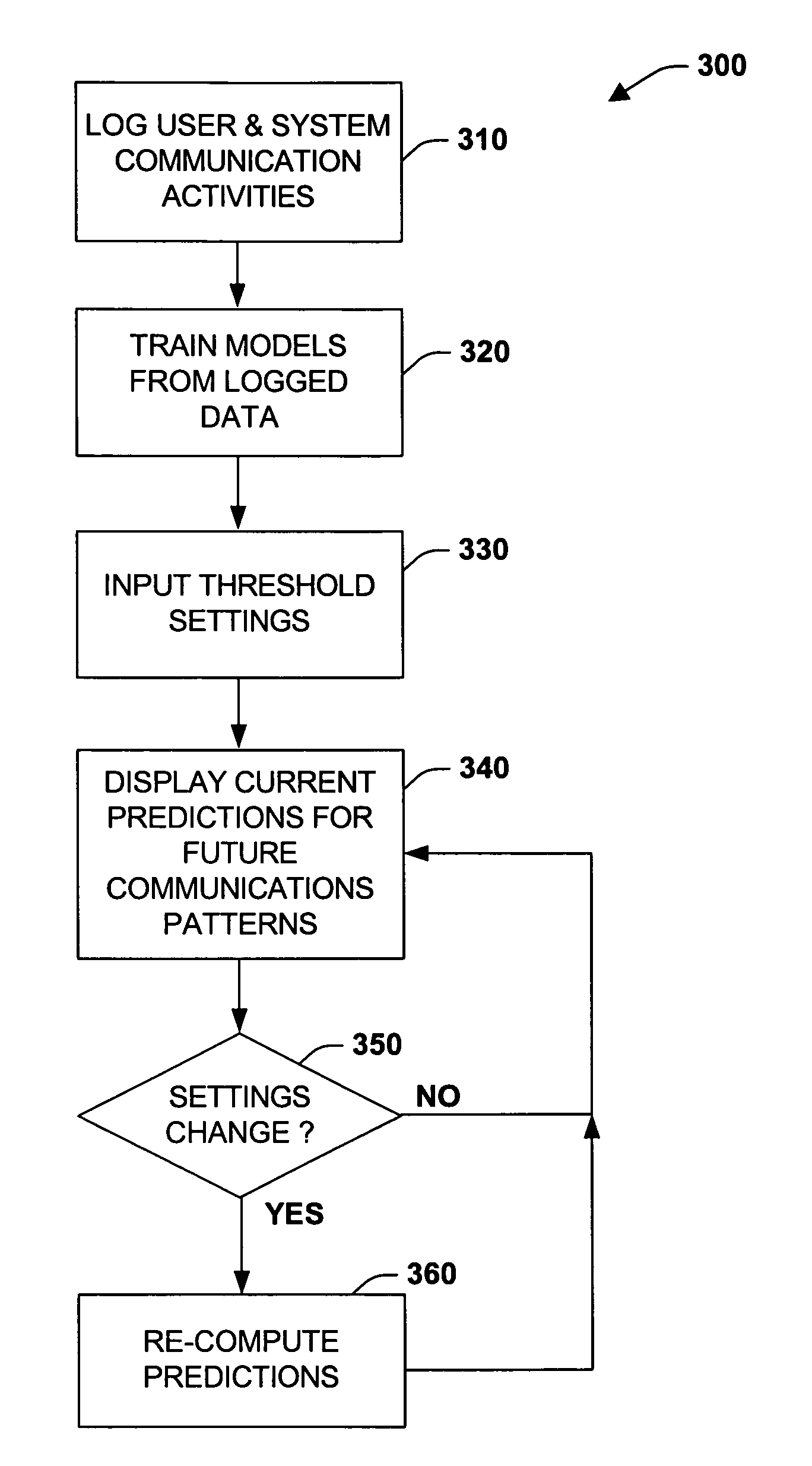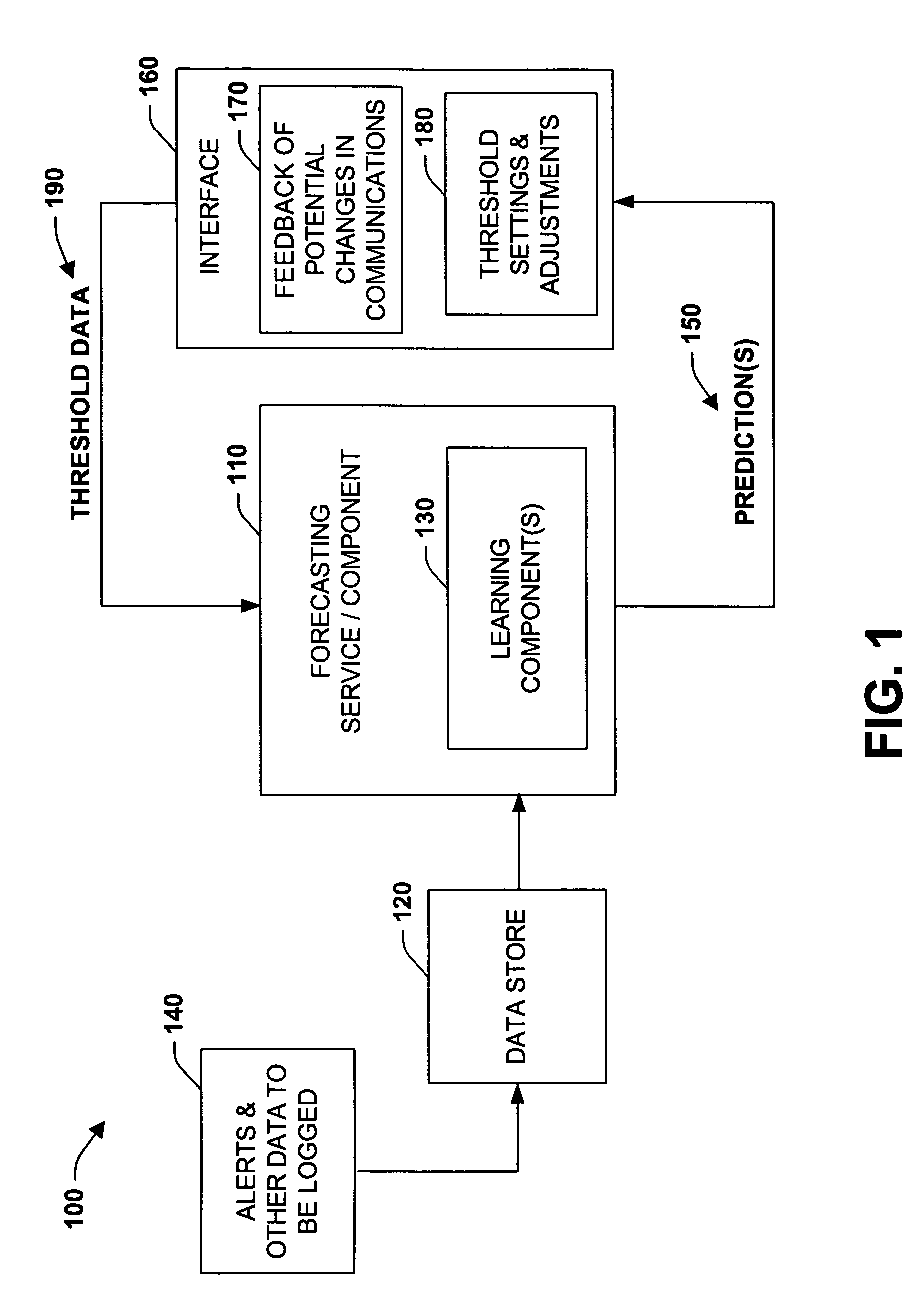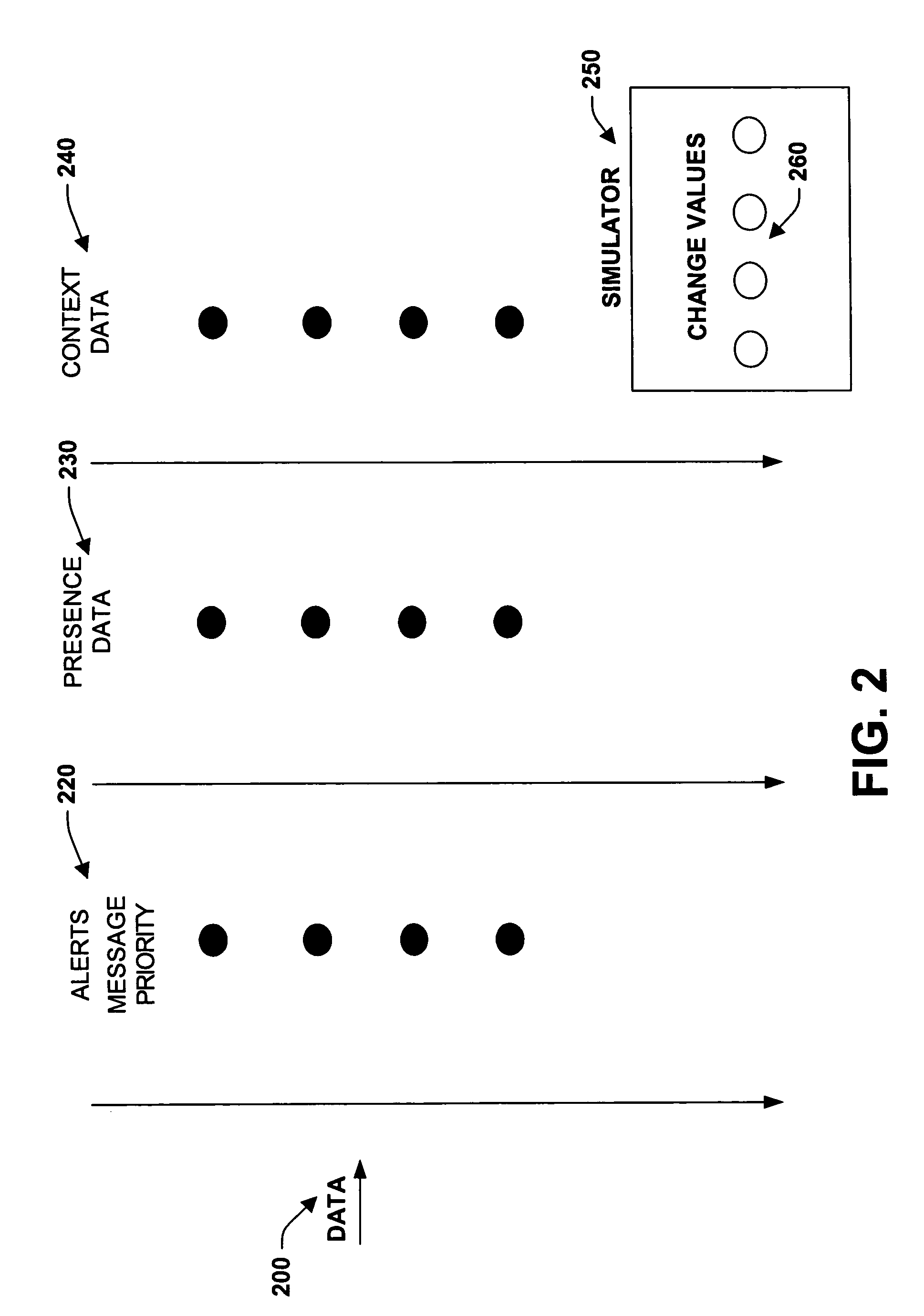Methods and interfaces for probing and understanding behaviors of alerting and filtering systems based on models and simulation from logs
a filtering system and behavior technology, applied in the field of computer systems, can solve problems such as the inability to manage information according to what is important, and the inability to send, receive and process information almost become a hindrance to being productiv
- Summary
- Abstract
- Description
- Claims
- Application Information
AI Technical Summary
Benefits of technology
Problems solved by technology
Method used
Image
Examples
Embodiment Construction
[0017]The present invention relates to a system and methodology to facilitate efficient interactions with an automated communications system. In one aspect, a system provides predictions relating to future communications performance. The system includes a data store that logs past communications activities directed to a user. A model predicts future communications performance of the system based upon the past communications activities. At least one threshold setting associated with a graphical user interface influences the model in regard to the future communications performance. In this manner, users can make adjustments to the system and be provided with potential communications outcomes as a result in order to efficiently manage communications flow (e.g., raising this setting causes X additional alerts per day).
[0018]As used in this application, the terms “component,”“service,”“model,” and “system” are intended to refer to a computer-related entity, either hardware, a combination...
PUM
 Login to View More
Login to View More Abstract
Description
Claims
Application Information
 Login to View More
Login to View More - R&D
- Intellectual Property
- Life Sciences
- Materials
- Tech Scout
- Unparalleled Data Quality
- Higher Quality Content
- 60% Fewer Hallucinations
Browse by: Latest US Patents, China's latest patents, Technical Efficacy Thesaurus, Application Domain, Technology Topic, Popular Technical Reports.
© 2025 PatSnap. All rights reserved.Legal|Privacy policy|Modern Slavery Act Transparency Statement|Sitemap|About US| Contact US: help@patsnap.com



